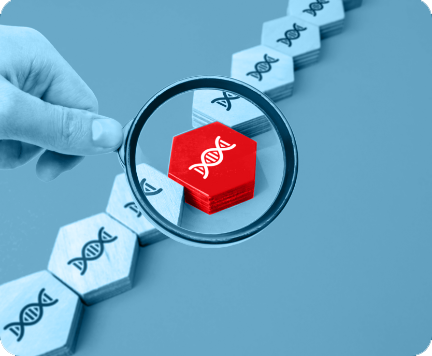Carnitine deficiency is a potentially serious metabolic disorder
There are two major forms of carnitine deficiency, primary and secondary carnitine deficiency.

Primary carnitine deficiency in newborns is diagnosed in 1 in 142,000 births in the United States each year.4
Screening newborns for carnitine deficiency
can detect low levels before symptoms emerge.3
Secondary carnitine deficiency in patients undergoing hemodialysis has multiple causes.
Secondary carnitine deficiency occurs in all patients undergoing hemodialysis for end-stage renal disease (ESRD) and other forms of kidney failure for several reasons:6
Hemodialysis: From the very first session, hemodialysis removes carnitine from the blood.
Reduced Intake: Inadequate intake via diet can exacerbate the decrease in carnitine.
Reduced production: The human body synthesizes 25 percent of its carnitine requirement, endogenously in the kidneys and liver. Patients on hemodialysis may have reduced production.
Total carnitine levels have been reported to decrease as much as 70 percent with a single hemodialysis treatment.6
All patients undergoing chronic dialysis will develop carnitine deficiency.6
ESRD patients with low carnitine can be identified with a simple carnitine blood test.4
Other causes of secondary carnitine deficiency include:4,5
Mitochondrial disease, certain inborn errors of metabolism that result in accumulation of toxic organic acids.
Liver disease
Certain medications, including valproic acid, cyclosporine, pivampicillin, and some anti-cancer drugs (such as etoposide and vinblastine).
Severe malabsorptive states
Malnutrition
Recognize carnitine deficiency when you see it.
Knowing the signs and symptoms of carnitine deficiency is the first step to making a diagnosis. Carnitine deficiency may cause the following2,7:
- encephalopathy
- cardiomyopathy
- hypoglycemia
- myopathy
- vomiting
- erythropoietin-resistant anemia
- intradialytic hypotension

CARNITOR® will correct carnitine deficiency. If you suspect your patient is carnitine deficient, click on the link below to learn more about testing.
- Carnitine: Fact Sheet for Health Professionals. National Institutes of Health. Updated April 17, 2023. Accessed September 20, 2023. https://ods.od.nih.gov/factsheets/Carnitine-HealthProfessional/.
- Primary Carnitine Deficiency: MedlinePlus Genetics. MedlinePlus. November 27, 2023. Accessed September 20, 2023. https://medlineplus.gov/genetics/condition/primary-carnitine-deficiency/.
- Primary Carnitine Deficiency. Health Resources & Services Administration. Updated December, 2023. Accessed September 20, 2023. https://newbornscreening.hrsa.gov/conditions/primary-carnitine-deficiency.
- Dahash BA. Carnitine Deficiency. StatPearls [Internet]. Updated August 7, 2023. Accessed March 20, 2023. https://www.ncbi.nlm.nih.gov/books/NBK559041/.
- CARNITOR® (levocarnitine) Injection [package insert]. Rockville, MD. Leadiant Biosciences, Inc. April, 2018.
- Evans AM, Faull RJ, Nation RL, et al. Impact of hemodialysis on endogenous plasma and muscle carnitine levels in patients with end-stage renal disease. Kidney International. 2004;66(4):1527-1534. doi:10.1111/j.1523-1755.2004.00916.x
- Eknoyan G, Latos DL, Lindberg J. Practice Recommendations for the Use of L-Carnitine in Dialysis-Related Carnitine Disorder. National Kidney Foundation. Carnitine Consensus Conference. American Journal of Kidney Diseases. 2003;41(4):868-876. doi:10.1016/s0272-6386(03)00110-0


